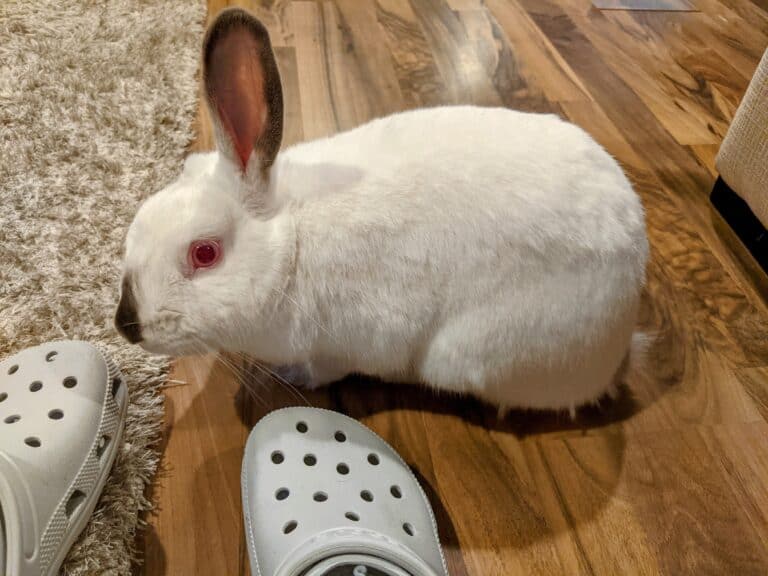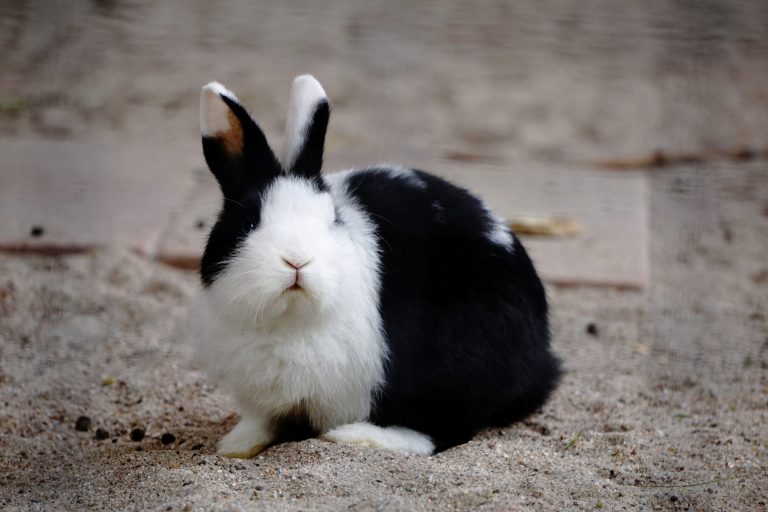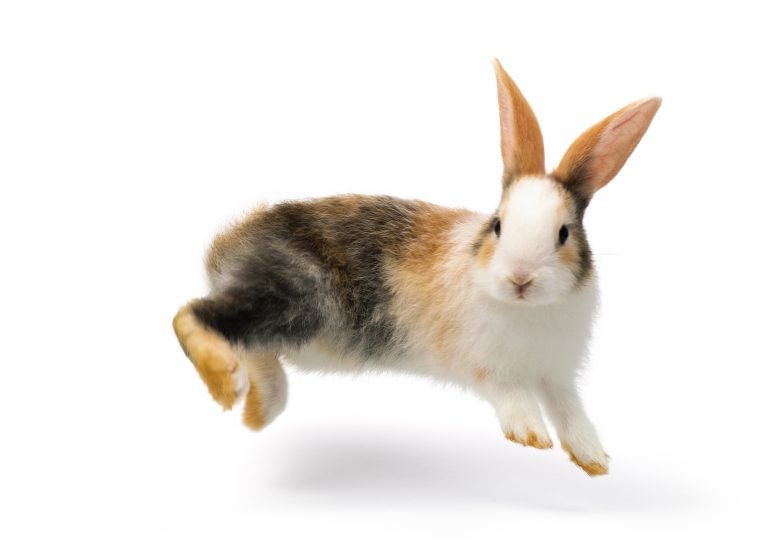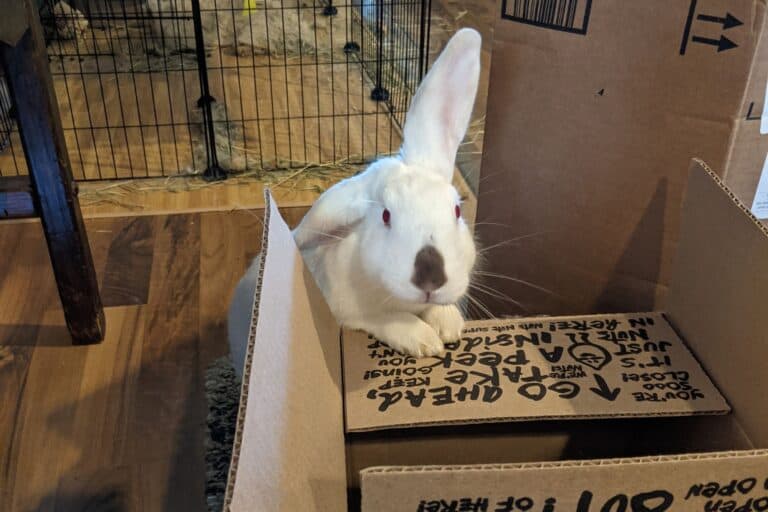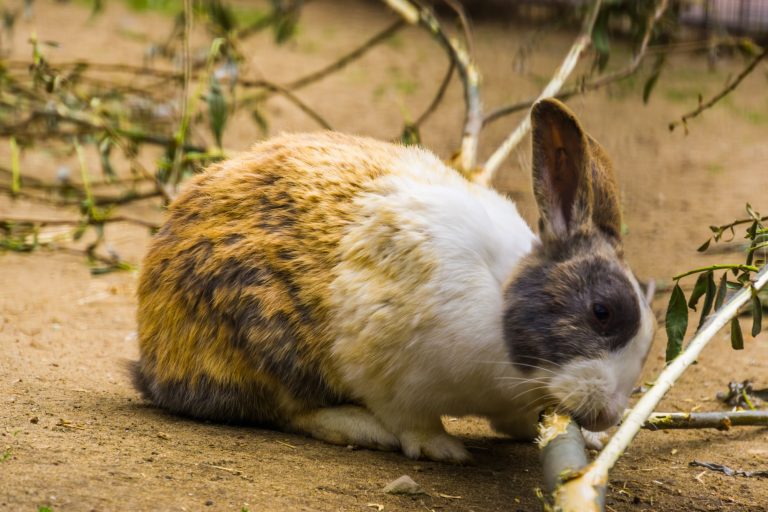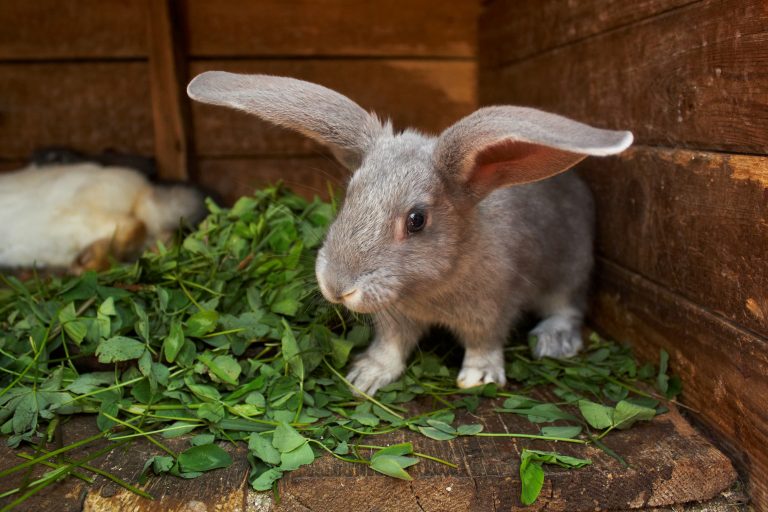How to Stop Rabbits from Chewing Walls
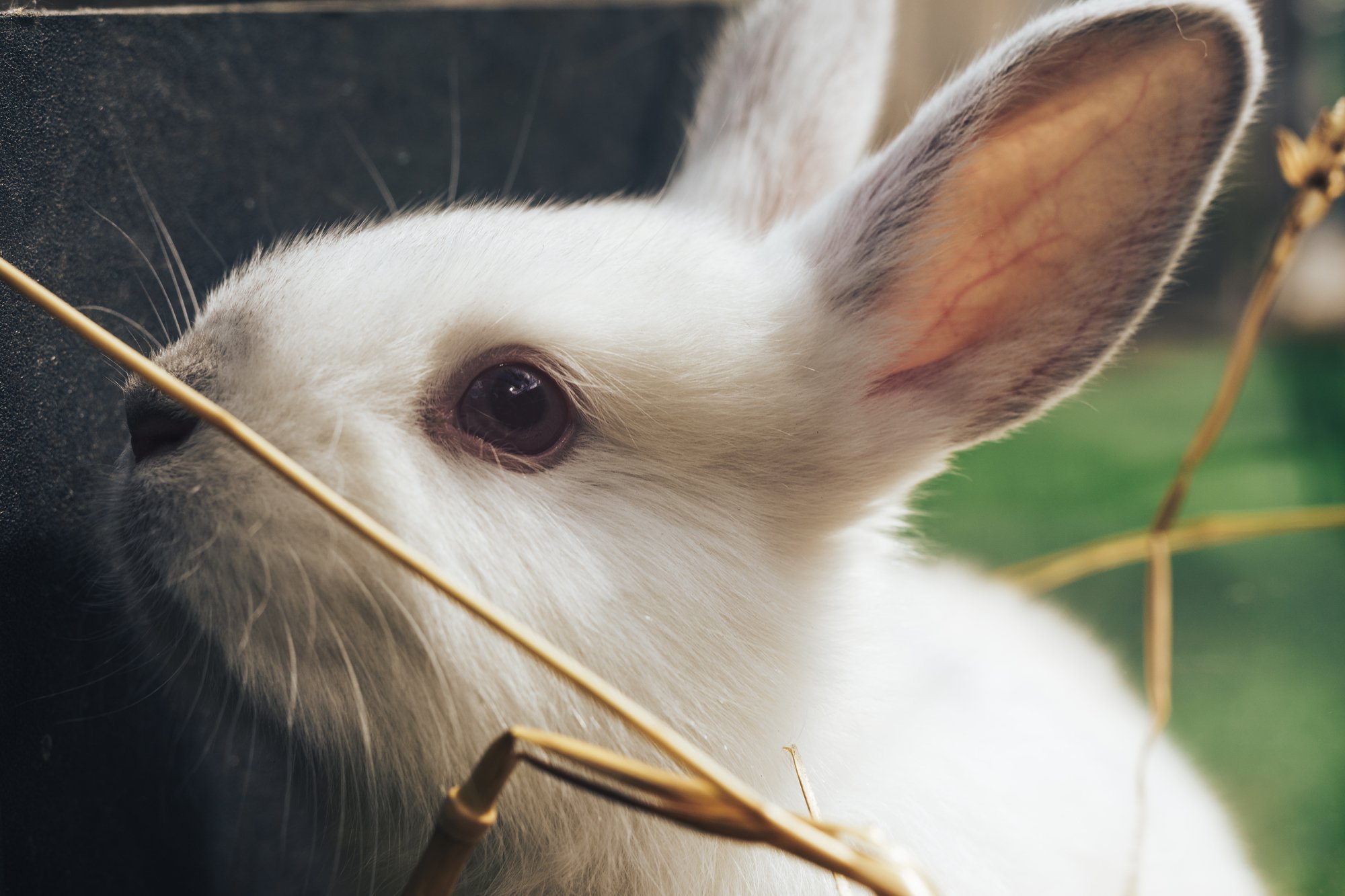
Dog lovers aren’t the only ones who can expect to come home and find their walls in tatters. It might surprise those unfamiliar with rabbits to discover that buns also have this nasty habit of munching on walls. Unfortunately, these adorable balls of fur have strong, long teeth, which can have destructive results if they decide to chomp on whatever they can sink those pearly whites in. No wonder many bun parents want to know how to stop rabbits from chewing walls.
Why Do Rabbits Chew Walls?
Rabbits chew on walls for several reasons. Knowing what drives them to do so will help you address the issue properly, so let’s take a look at why buns find your walls such delectable snacks.
Instinct
Rabbits have a natural urge to chew. Their perpetually-growing teeth need whittling down, or else they get too long and create all sorts of problems. Malocclusion and misalignment of the teeth are examples of dental issues that may occur due to overgrown teeth.
One way of curbing the length of those pearly whites is by chewing on hard, fibrous materials. Walls have a texture akin to that of trees, which rabbits in the wild use to wear down their teeth. That makes them perfect for munching.
Hunger or Nutritional Deficiencies
If your bun is chewing the walls, he may not be getting enough to eat. No, we’re not accusing you of starving your fur baby. He may just need more food to keep pace with his metabolism. A diet that lacks certain vitamins and minerals can also drive a rabbit to chew whatever it can lay his teeth on, thinking that could be the source of the missing nutrient.
Boredom
Rabbits need mental stimulation. Otherwise, they can get bored, which sometimes leads to destructive behavior. If they don’t have any enriching activity, they will find things to do on their own. Your walls become the target if you’ve removed other tempting objects like shoes and clothes from your pet’s reach.
Seeking Attention
Because rabbits are social animals, they want company and attention. They’re also smart, and they can quickly discover what behavior will get your goat. If you exhibited a strong reaction when you spotted him nibbling at the walls, don’t be surprised if he repeats the act. That may be his way of grabbing your attention.
Personal Preference
Believe it or not, some rabbits like the way walls taste. Or maybe it’s the paper, paint, or glue that whet their appetite. With buns, it’s hard to tell. Each one is unique, after all. Does your fur baby eat the wallpaper or paint but leave the underlying wood untouched? That may indicate that it’s the paper or paint he loves.
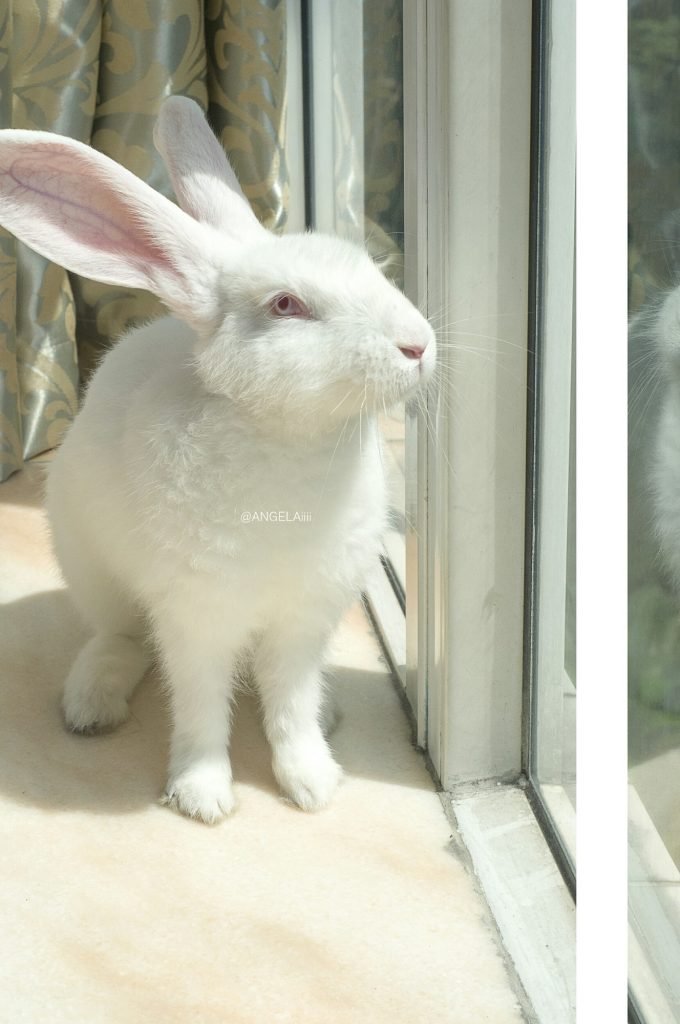
This post contains affiliate links. Affiliate links support Every Bunny Welcome at no additional cost to you. I receive a commission if you choose to make a purchase through these links.
Is It Harmful to Rabbits?
There’s no question about it, munching on walls can harm your pet. More so because rabbits have sensitive digestions. As such, wall-nibbling can result in a host of problems. The paint may contain harmful substances, such as lead, that are toxic to rabbits. If ingested in large quantities, lead can cause damage to a rabbit’s cells in the brain and spinal cord.
The walls may also have bacteria and viruses on their surface, which will get into your bun’s system when he nibbles on the paint or wood. Ingesting these bacteria and viruses can affect your rabbit’s health.
Although rabbits eat wood in the wild, not all types of wood are safe for them. Thus, depending on what kind of wood you use for the walls in your home, wall-nibbling may impact your pet’s physical wellbeing.
How to Stop Your Rabbit from Chewing Walls
Munching on walls is not only destructive, but it can also hurt your fur baby. Fortunately, several ways to stop this behavior exist, and most aren’t that challenging to implement. Here are some of them. Try a few and see which one works on your pet.
Provide a Balanced Diet
We mentioned that nutritional deficiencies might be behind his habit of eating the walls. To eliminate this possibility, provide your bun with a well-balanced diet. Rabbits need a steady supply of hay, a good portion of green, leafy veggies, some fruits, and good quality pellets.
Relieve Boredom
Your bun will be less likely to nibble your walls if he has something better to do. There are plenty of toys that will keep your rabbit entertained. Meanwhile, chew toys will allow him to satisfy his urge to chew. Munching on such toys gives the added benefit of whittling down his teeth. Check his pearly whites. If they seem too long, look for durable and abrasive chew toys made of natural materials.
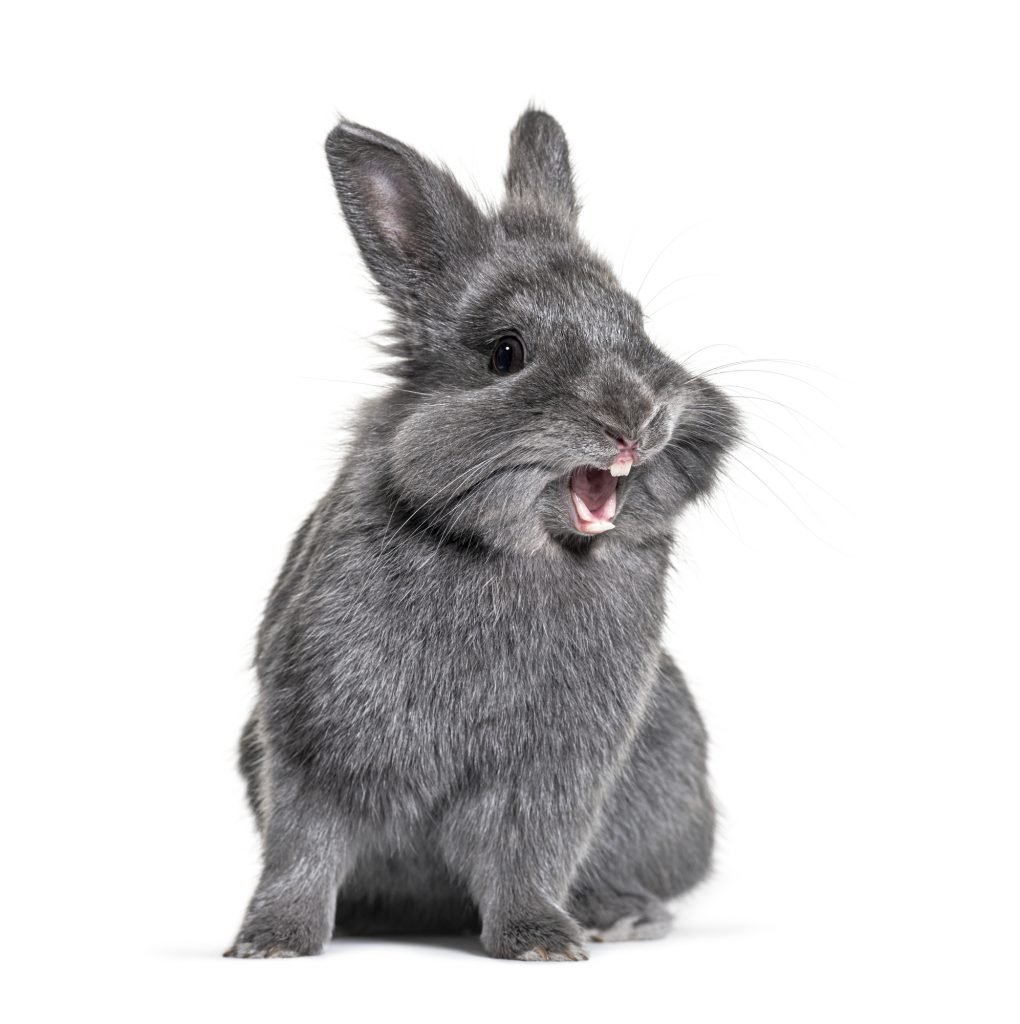
Use Bitter Sprays
Bitter sprays can make your walls less appealing to a rabbit who loves to nibble. One lick of the unsavory taste, and your pet will likely wander off looking for something better to munch on. Squirt on the mixture on areas that your bun frequently chews and anywhere else that is within his reach. Reapply often to ensure its potency. There are recipes for DIY sprays, but it’s best to stick to rabbit-specific varieties like this one.
Train Your Rabbit
Being intelligent animals, rabbits can learn some basic commands. When you catch your bun chewing on the walls, firmly tell him no. Gently hold his head down to the ground to establish dominance and maintain that position for a few seconds. Move your pet away from the wall and make sure you redirect his attention so he won’t return to what he was doing. Try giving him food, chew toys, or a few minutes of attention.
Ramp Up Your Pet’s Hay Supply
Hay is fibrous. Not only does it wear down your pet’s teeth, but it also provides the fiber he needs for his digestive system. In case your rabbit happens to ingest bits of wood and wallpaper, eating hay becomes more crucial as it helps push the material down the digestive tract, preventing blockage.
Rabbits chew walls for a variety of reasons. The good news is, with a bit of time and some extra effort, you stand a high chance of ridding your pet of that habit. Remember not to lose your patience with your rabbit. Instead, give him the love and attention he craves, and hopefully, he’ll leave your walls alone.
We hope you enjoyed this post! If you did, will you give it a share or two 🙂 Thank you! ~from Every Bunny Welcome


